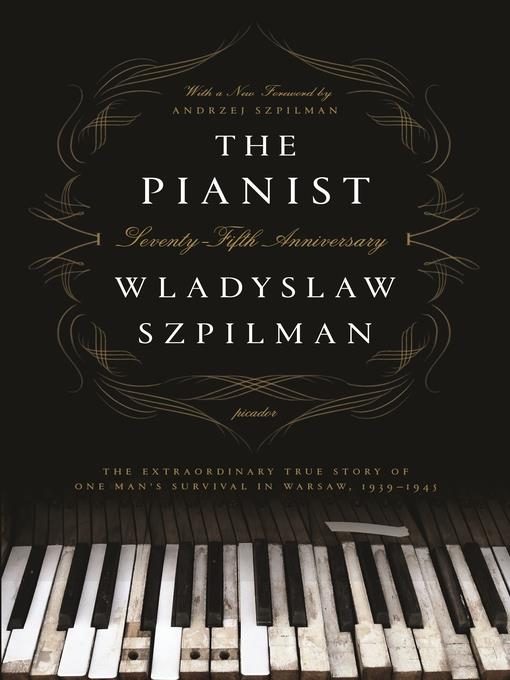
The Pianist
The Extraordinary True Story of One Man's Survival in Warsaw, 1939-1945
کتاب های مرتبط
- اطلاعات
- نقد و بررسی
- دیدگاه کاربران
نقد و بررسی

Starred review from August 30, 1999
Originally published in Poland in 1945 but then suppressed by the Communist authorities, this memoir of survival in the Warsaw Ghetto joins the ranks of Holocaust memoirs notable as much for their literary value as for their historical significance. Szpilman, a Jewish classical pianist, played the last live music broadcast from Warsaw before Polish Radio went off the air in September 1939 because of the German invasion. In a tone that is at once dispassionate and immediate, Szpilman relates the horrors of life inside the ghetto. But his book is distinguished by the dazzling clarity he brings to the banalities of ghetto life, especially the eerie normalcy of some social relations amid catastrophic upheaval. He shows how Jewish residents of the Polish capital adjusted to life under the occupation: "The armbands branding us as Jews did not bother us, because we were all wearing them, and after some time living in the ghetto I realized that I had become thoroughly used to them." Using a reporter's powers of description, Szpilman, who is still alive at the age of 88, records the chilling conversations that took place as Jews waited to be transported to their deaths. "We're not heroes!" he recalls his father saying. "We're perfectly ordinary people, which is why we prefer to risk hoping for that 10 per cent chance of living." In a twist that exemplifies how this book will make readers look again at a history they thought they knew, he details how a German captain saved his life. Employing language that has more in common with the understatement of Primo Levi than with the moral urgency of Elie Wiesel, Szpilman is a remarkably lucid observer and chronicler of how, while his family perished, he survived thanks to a combination of resourcefulness and chance.

























دیدگاه کاربران